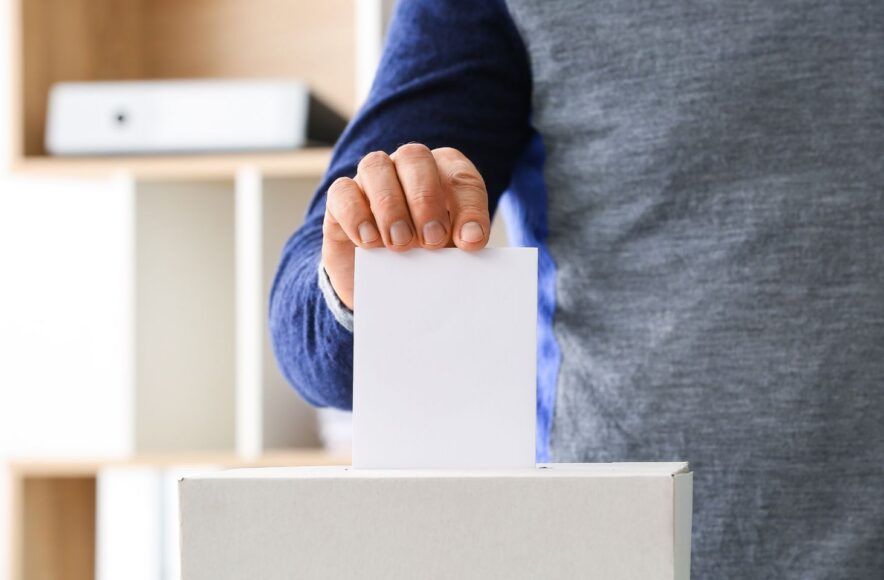Disability organisations receive funding to ensure everyone can exercise their right to vote

The national disability organisations have received £30,000 in funding from the UK Democracy Fund, a Joseph Rowntree Reform Trust initiative with the aim to increase voter participation amongst young people and adults who have either a learning disability, autism or an acquired brain injury.
New research into this target community is essential as current information on voter experience is limited, though previous studies indicate that voter turnout of people with learning disabilities is as much as 40% lower than that of the general population.
The national campaign hopes to identify the thousands of people who are not accessing their right to vote and help overcome any barriers to ensure their voices are heard.
The campaign aims for self-advocates, support providers, local councils, charities, education providers, family networks and MPs to work together to close the electoral participation gap for the target group.
Recently United Response led the call with Dimensions for the government to guarantee accessible voting for people with disabilities and autism, with over 30 signatures from leading charities such as Mencap, Sense, Leonard Cheshire and political figures, including Mayor of Greater Manchester Andy Burnham co-signing the accessible voting pledge.
The two year campaign hopes to build on this momentum in the expectation that physical and digital resources will be in place early next year to encourage voter registration before the next general election. With Mencap already pledging their support for the campaign, the hope is that many more will join the coalition.
Ali Gunn Public Affairs and Policy Lead of United Response, said:
“We are delighted to have received funding from the Joseph Rowntree Reform Trust. Voting and elections should be accessible to everyone with the legal right to vote, whether they have a disability or not.
“By mobilising learning disability and autism networks in a national campaign, we believe that we can reach our underrepresented communities at a scale not seen before, providing disabled people with the information, tools and support they need to exercise their democratic right to vote.”
Mark Brookes, Advocacy Lead at Dimensions, comments:
“If, like me, you live with a learning disability in the UK today, you’re likely to be having a tough time.
“There are enormous barriers to living an ordinary life, stretching across swathes of society including health, welfare, care and support, crime and policing, education, and the list goes on.
“I believe one of our best chances of changing this would come from more of the people with learning disabilities and/or autism exercising their right to vote. It is a right that we all have, regardless of what misconceptions people might hold.
“If we don’t vote, we don’t matter to politicians. They can concentrate on other concerns. But what if all 2.2 million of us voted?
“That’s right. There’s a million and a half people with a learning disability and 700,000 autistic people in the UK today.
“If we all voted, politicians would have to listen to us.
“And that is what this campaign is about. We’re going to be working with voluntary groups, care providers, self-advocacy organisations – in fact, anyone who will listen. We’re going to get people to believe that things can change for the better, get people to register to vote, and get people to the ballot box.
“We are grateful for the Joseph Rowntree Reform Trust for its grant of £30,000, which will help us achieve this aim. There is still plenty of work to be done, however, but it is an aim well worth working towards. Our goal is to help create better lives for more people.
“Because better is possible. But only if we act.”